Turn garbage disposal waste into compost?
hup2345
15 years ago
Featured Answer
Sort by:Oldest
Comments (55)
jeannie7
15 years agolast modified: 9 years agoval_s
15 years agolast modified: 9 years agoRelated Professionals
New Mexico Landscape Architects & Landscape Designers · Richmond Heights Landscape Architects & Landscape Designers · Fort Myers Landscape Contractors · Golden Landscape Contractors · Gresham Landscape Contractors · Lynn Landscape Contractors · Mission Viejo Landscape Contractors · Waipahu Landscape Contractors · Washington Landscape Contractors · Cincinnati Decks, Patios & Outdoor Enclosures · High Point Decks, Patios & Outdoor Enclosures · Orange County Decks, Patios & Outdoor Enclosures · Overland Park Decks, Patios & Outdoor Enclosures · Palm Beach Gardens Decks, Patios & Outdoor Enclosures · Parlier Decks, Patios & Outdoor Enclosuresval_s
15 years agolast modified: 9 years agomark94544
15 years agolast modified: 9 years agobradley787
15 years agolast modified: 9 years agograyentropy
15 years agolast modified: 9 years agotoxcrusadr
15 years agolast modified: 9 years agoluckygal
15 years agolast modified: 9 years agodorisl
15 years agolast modified: 9 years agotoxcrusadr
15 years agolast modified: 9 years agonsmaby_gmail_com
14 years agolast modified: 9 years agoswanz
14 years agolast modified: 9 years agopennymca
14 years agolast modified: 9 years agoKimmsr
14 years agolast modified: 9 years agodr.doorlock
14 years agolast modified: 9 years agobruceaross
13 years agolast modified: 9 years agosylviatexas1
13 years agolast modified: 9 years agomillionthstar_hotmail_com
13 years agolast modified: 9 years agojolj
13 years agolast modified: 9 years agoTheInkedSurfer
10 years agolast modified: 9 years agonancyjane_gardener
10 years agolast modified: 9 years agotoxcrusadr
10 years agolast modified: 9 years agokatherinejones24
10 years agolast modified: 9 years agoZap-Man
10 years agolast modified: 9 years agotoxcrusadr
10 years agolast modified: 9 years agopipperee
10 years agolast modified: 9 years agoKimmsr
10 years agolast modified: 9 years agogwpinetree
10 years agolast modified: 9 years agotoxcrusadr
10 years agolast modified: 9 years agohummersteve
10 years agolast modified: 9 years agogardenper
10 years agolast modified: 9 years agoSuzi AKA DesertDance So CA Zone 9b
10 years agolast modified: 9 years agoThlinn
9 years agolast modified: 9 years agotoxcrusadr
9 years agolast modified: 9 years agoAaron Rodgers
9 years agotoxcrusadr
9 years agoUser
9 years agotoxcrusadr
9 years agobassopotamus
9 years agoneddy24
9 years agoterrefirma
8 years agocoppice
8 years agotoxcrusadr
8 years agodvnwk
7 years agotoxcrusadr
7 years agonew2dance
5 years agonew2dance
5 years agotoxcrusadr
5 years agoHU-397033266
4 years ago
Related Stories
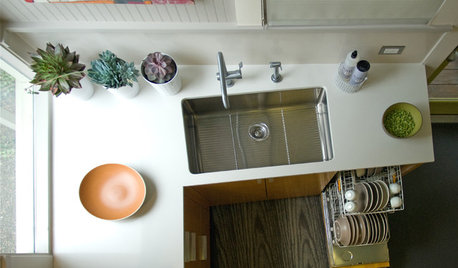
HOUSEKEEPINGHow to Fix a Stinky Garbage Disposal
No plumber’s fee or even a trip to the hardware store is required with these easy solutions
Full Story
GARDENING GUIDESGet on a Composting Kick (Hello, Free Fertilizer!)
Quit shelling out for pricey substitutes that aren’t even as good. Here’s how to give your soil the best while lightening your trash load
Full Story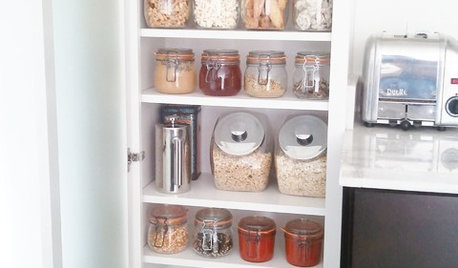
HEALTHY HOME6 Tips From a Nearly Zero-Waste Home
Lower your trash output and increase your quality of life with these ideas from a mom who did it to the max
Full Story
MOST POPULAREasy Green: 23 Ways to Reduce Waste at Home
Pick from this plethora of earth-friendly ideas to send less to the landfill and keep more money in your pocket
Full Story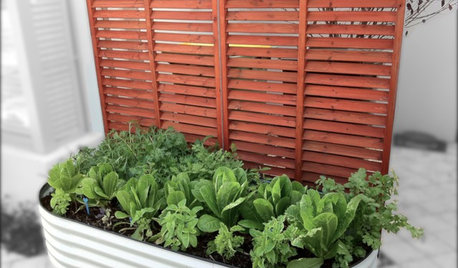
FEEL-GOOD HOME21 Ways to Waste Less at Home
Whether it's herbs rotting in the fridge or clothes that never get worn, most of us waste too much. Here are ways to make a change
Full Story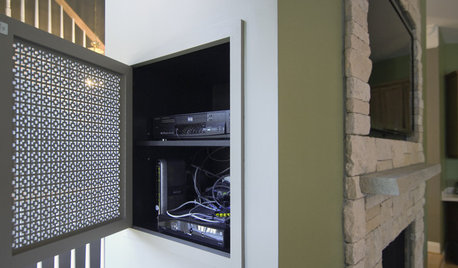
HOUSEKEEPINGTackle Home Junk With Proper Disposal
No matter how well you scrub, your home will never be spotless until the junk disappears. Here's how to lose it with a clean conscience
Full Story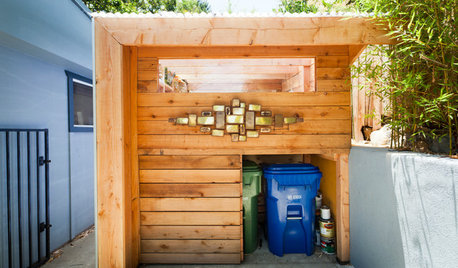
CURB APPEALHouzz Call: How Do You Hide Your Trash?
No one wants to see those trash and recycling bins. So where do you stash them while you wait for the garbage truck? Show us your designs!
Full Story
EARTH DAYGrow a Beautiful Garden With Ecofriendly Greywater
Reducing home water waste means lower bills and a healthier planet. Here's how to set up a greywater home irrigation system that can help
Full Story
DECORATING GUIDESBudget Decorating: How to Decorate Smart and Slow
To make the most of your decorating dollar, forgo the disposable stuff, think vintage and free first and give yourself a splurge
Full Story
GARDENING GUIDESNo-Regret Plants: 5 Questions Smart Shoppers Ask
Quit wasting money and time at the garden center. This checklist will ensure that the plants you're eyeing will stick around in your yard
Full StorySponsored
Your Custom Bath Designers & Remodelers in Columbus I 10X Best Houzz
More Discussions








mark94544